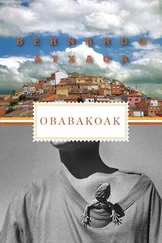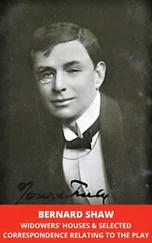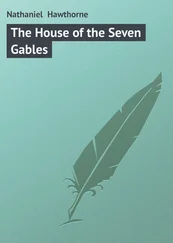‘We’ll do our best to make it so,’ said Lalande Biran.
Donatien was still lingering on the threshold, with his shoes off now. He was observing the Captain.
‘I left the ring in the usual place, Captain,’ he said. ‘I don’t know if you saw it.’
Lalande Biran found it hard to sleep with his wedding ring on his finger and used to leave it on a shelf before going to bed. Sometimes, though, he forgot and would take it off in his sleep, and it would disappear among the sheets and end up on the floor. It was a beautiful gold ring encrusted with diamonds.
Lalande Biran went over to one of the shelves. In a space between the books was a small ivory box. Donatien usually left the ring there.
‘Is there anything else?’ asked the Captain, turning towards his assistant, without putting on the ring.
Donatien lowered his eyes. His Adam’s apple sank in his throat.
‘I’ve sent four askaris ,’ he said.
Every Thursday, Donatien went into the jungle in search of a young girl to bring back for the Captain. In theory, this was an easy enough operation, but in practice, it proved quite difficult, for the simple reason that Lalande Biran would only accept virgins. He didn’t want to take any risks. Syphilis had reached the jungle, it wasn’t just something you could catch in Paris or in Antwerp.
‘Whatever the weather, you have to go. It’s your job. This had better not happen again.’
Donatien didn’t like it when the Captain got angry with him.
‘When they bring her, I’ll wash her and do all the necessary tests,’ he said. ‘I always do that. I never leave that part of the work to the askaris .’ ‘ Jamaisjélescepartd’tyravailauaskari .’
‘Make sure this is the last time!’ said Lalande Biran.
‘Yes, Captain.’
‘The last time!’ Lalande Biran said again.
‘If I may, I’ll go and tidy your room now, Captain,’ said Donatien, disappearing from the door.
When the Captain had eaten the baked bananas and the fried eggs, he went over to the desk, taking a cup of coffee with him. He moved a few papers and documents to clear a space, then lit a cigarette and began the letter he had been writing in his head during breakfast:
My dear Toisonet,
Allow me to begin this message from Africa with a few words from the Master: ‘When the earth has become a dank dungeon, from which Hope like a bat flits away …’ Believe me, if he had been here, he would not have seen the bat of Hope, only its ghost. Yangambi is far more terrible than Paris, although, in some ways, it can also be more beautiful. Beauty, as you well know, can sometimes be an aspect of the terrible. You often talk to me of palm trees, snakes, lions, rhinoceroses and the other inhabitants of these lands …
The introduction was somewhat over-long, because once he had begun in that vein, he could go on for ever. Nevertheless, he managed, line by line, to clarify his ideas. He asked Toisonet to do all he could to ensure that the royal steamship stopped in Yangambi, and not in Kisangani or in any other place close to the Stanley Falls. He wanted to welcome the King and the future queen of the Congo to Government House, along with Mbula Matari and, of course, himself, Toisonet. The problem was that there, in that remote corner of the Congo, he lived in such utter intellectual solitude. Not one of the eighteen officers knew who Baudelaire was, indeed, his second in command, Lieutenant Van Thiegel, called him Baudelaine, and thought it was a woman’s name because it sounded like ‘Madelaine’.
He re-read what he had written and was pleased, especially by that mention of Mbula Matari, ‘the breaker of rocks’. This would impress Toisonet, who would know it was Henry Morton Stanley’s old African nickname, dating from the time when the explorer had played a part in building the railway between Matadi and Léopoldville. Twenty-five years on, very few people remembered it, and the few who did called him Bula Matari. And yet the name was more exact and more meaningful with that initial ‘M’, Mbula, Mbula Matari. That one little letter made it sound far more African somehow.
He dated the letter 12 July 1904 and signed with his full name: Philippe Marie Lalande Biran.
At the bottom of the page there was space for another ten lines or so, and he decided to fill it with a postscript:
I’m working on a new poem. It’s entitled ‘A Duel between Kings’. I’ll send it to you as soon as it’s finished. Oh, and I was going to paint a landscape for you, as you requested, but I ordered the canvases from Léopoldville over two months ago and still haven’t received them. I will be having a visitor today, so, instead, I will send you a pencil sketch of the girl, in the hope that it will soften your heart and encourage you to grant the favour I’m asking you.
Lalande Biran was aware that his metaphysical superiority over Toisonet was due not only to his merits as a poet, but equally or possibly even more so to his talent for drawing and painting. That postscript would add its grain of sand when it came to tipping the scales in favour of the royal visit to Yangambi.
He put the letter in the envelope and wrote Toisonet’s address: Monsieur le Duc Armand Saint-Foix, Palais Royal, Bruxelles, Belgique .
He consulted the calendar and made his calculations. The steamship would pass through Yangambi the next day, and so the letter would leave without delay. The letter should be in his friend’s hands by the beginning of August.
Covered by the mosquito net, his bed was like a small semitransparent hut within the room itself. Biran lay down, his eyes open.
The knotted cotton threads of the mosquito netting formed squares or rectangles that were about the size of the canvases he used for painting. But they weren’t canvases, and you couldn’t paint on them. He found it very difficult to devote himself to painting in Yangambi. He had managed to finish a number of paintings during his years there, but the heat and humidity had ruined them. Even though he loved painting as much as he loved poetry and considered it a better way of passing the long hours in the jungle, he was gradually losing interest. He did pencil sketches once a week, but that was all. And he did those sketches more for sexual reasons than out of any artistic urge. When Donatien brought him a girl, he would begin by drawing her body. It was a way of postponing the pleasure.
He went over the last part of the letter in his head. ‘Mbula Matari’. Toisonet would be sure to notice the African touch that the ‘M’ gave to Stanley’s nickname. As for the poem he had promised to send, Toisonet would be sure to like that too, and he could even perhaps recite it on some occasion when the King met with Belgian poets.
His imagination gave a small leap and he began to savour in advance the image of the young girl Donatien would bring to him that day. He imagined her full lips, strong shoulders, firm breasts and thighs and, lastly, the centre of her body. Soon, that girl, or another very like her, would be his. It was wonderful to be able to allow himself such a pleasure. It was wonderful, above all, because for that young woman, he would be the first man. He couldn’t risk contracting syphilis in the way that Van Thiegel, Richardson and the other officers did. Christine would never forgive him. His wife was French and Parisian to boot, and although much more open than he was when it came to sex, syphilis was quite another matter. Sometimes he was assailed by the fear that Donatien might not take enough care when it came to testing the girls or might even lie to him about them, but he had been carrying out the task for nearly six years now and there had been no mishaps yet. Donatien might be a fool, but he took the Captain’s threats very seriously. He knew that one mistake would mean being sent up the Lomami River, to the place where the Congolese rebels hunted white men and flayed them alive.
Читать дальше












